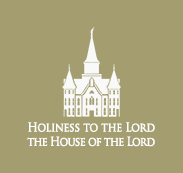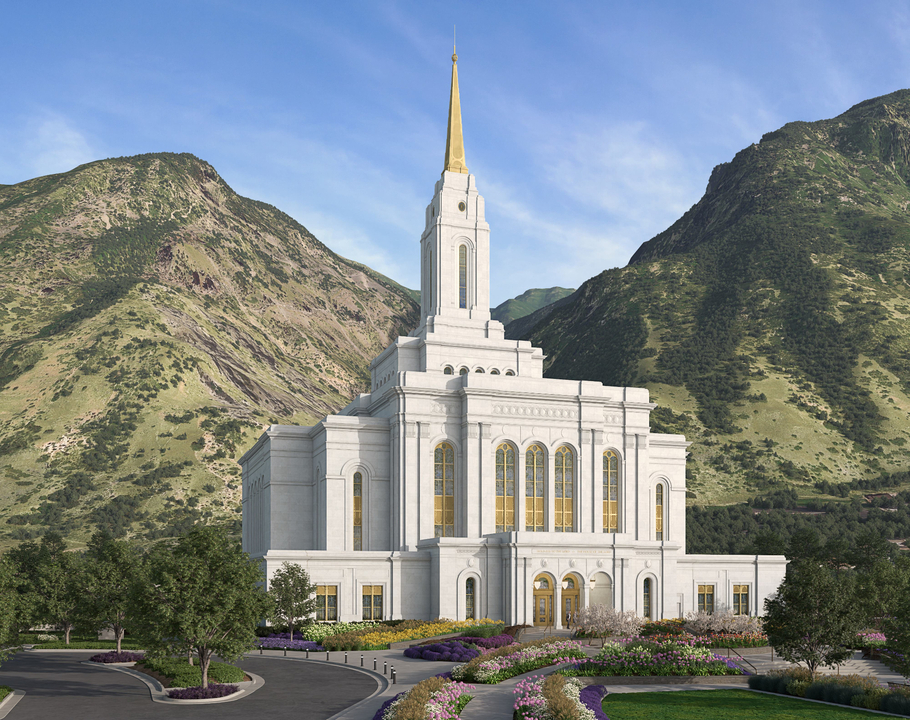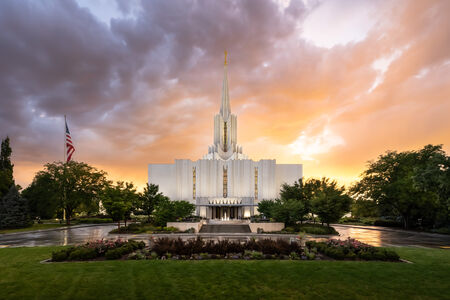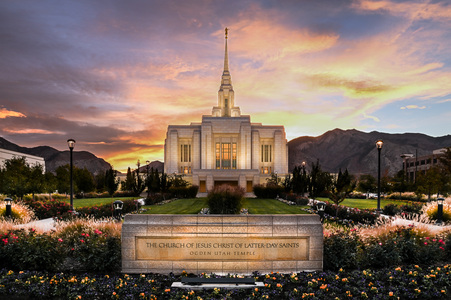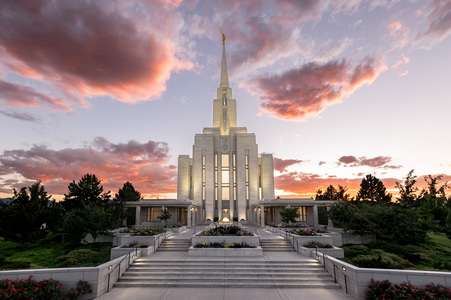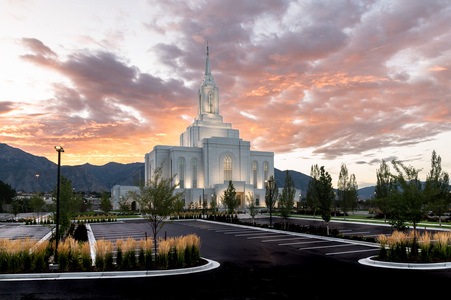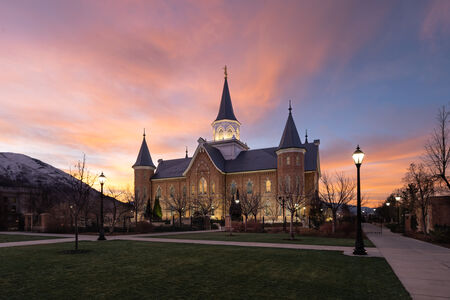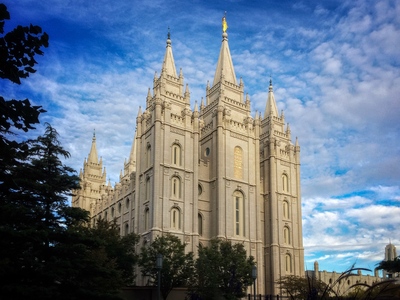Ogden Utah Temple
Washington D.C. Temple
Provo Utah Rock Canyon Temple
15th dedicated temple in operation; closed for renovation; framing the steeple; sheathing the exterior; interior framing underway; first layer of asphalt paved in the west parking lot; renovation estimated to be completed in mid- to late 2027
Closed for Renovation
Announcement:
14 August 1967Site Dedication:
15 September 1969 by Joseph Fielding SmithGroundbreaking:
15 September 1969 by Hugh B. BrownPublic Open House:
10–29 January 1972Dedication:
9 February 1972 by Joseph Fielding Smith (read by Harold B. Lee)Architectural Features:
Single attached central spireElevation:
4,876 feet | 1,486 metersTemple Reconstruction
In his concluding remarks at the Sunday Afternoon Session of the October 2021 General Conference, President Russell M. Nelson announced that the Provo Utah Temple would be closed for demolition and reconstruction following the dedication of the Orem Utah Temple. The closure date was later announced as Saturday, February 24, 2024, at the conclusion of ordinance work. Members of the temple district are encouraged to attend other temples during the closure as their circumstances permit. Those desiring to receive their own ordinances should contact a temple in the surrounding area to schedule an appointment.1 The new temple will be named the Provo Utah Rock Canyon Temple.2
Temple Locale
Located on Provo's east bench near the mouth of magnificent Rock Canyon, the Provo Utah Rock Canyon Temple claims a stunning backdrop of towering mountains. The extensive grounds are decorated with a cascading water feature and numerous flowers, shrubs, and trees. Across the street is the Provo Missionary Training Center (MTC) where thousands of young missionaries reside year round preparing for missionary service around the world. The campus of Church-owned Brigham Young University (BYU) borders the temple to the southwest.
Temple History
The Provo Temple was the sixth temple built in Utah and the first built in Utah County. It was rebuilt as the Provo Utah Rock Canyon Temple in the 2020s.
The Provo Utah Rock Canyon Temple (1972) and Provo City Center Temple (2016) were the second pair of temples to be built in the same city, following the Jordan River Utah Temple (1981) and Oquirrh Mountain Utah Temple (2009) in South Jordan, Utah.
The Provo Utah Rock Canyon Temple is a reconstruction of the Provo Temple, which was dedicated in 1972 and renamed the Provo Utah Temple in 1999.
The announcement of the Provo Temple and Ogden Temple was prompted by a statistic computed in the mid-1960s that 52 percent of all ordinance work was performed in three temples: the Logan Temple, the Manti Temple, and the Salt Lake Temple.
The original design for the Provo Temple included a gold-leafed statue of the angel Moroni atop a gold-colored spire. The statue was eventually eliminated from the design, though one was added over 31 years after its dedication as part of a renovation project in 2003 that also changed the spire color from gold to white. The Provo Utah Rock Canyon Temple, which replaced the Provo Temple, was designed with no angel Moroni.
The groundbreaking ceremony for the Provo Temple was held just one week after the groundbreaking ceremony for the Ogden Temple, marking the first time that two groundbreaking ceremonies were held in the same month. The two buildings were built at the same time and were nearly identical in appearance until the Ogden Utah Temple was given an architectural facelift in the early 2010s.
The Provo Utah Rock Canyon Temple stands adjacent to Church-owned Brigham Young University. The Church's other two universities; Brigham Young University–Hawaii in Laie, Hawaii, and Brigham Young University–Idaho in Rexburg, Idaho; also have adjacent temples.
President Joseph Fielding Smith presided at the dedication of the Provo Temple, but at his request, the prayer he had written was offered by President Harold B. Lee, First Counselor in the First Presidency.
The Provo Temple was dedicated in just two sessions by seating attendees—in addition to the temple—in the Marriott Center, George Albert Smith Fieldhouse, Joseph Smith Building, Harris Fine Arts Center, and Knight-Mangum Hall (Language Training Mission) on the BYU campus. Over 70,000 attended in what was the largest temple dedication in history.
In the late 1970s, a feasibility study was prepared by the Provo Temple presidency for the establishment of a Provo Temple Visitors' Center. The study included statistical compilations of responses to a survey sent to stake presidents within the temple district. However, no visitors' center was ever established.
- "News for Three Temples in the USA," The Church of Jesus Christ of Latter-day Saints News Release, 20 Jun. 2023.
- "The Provo Temple Will Reopen as the Provo Utah Rock Canyon Temple," The Church of Jesus Christ of Latter-day Saints News Release, 20 Feb. 2024.
